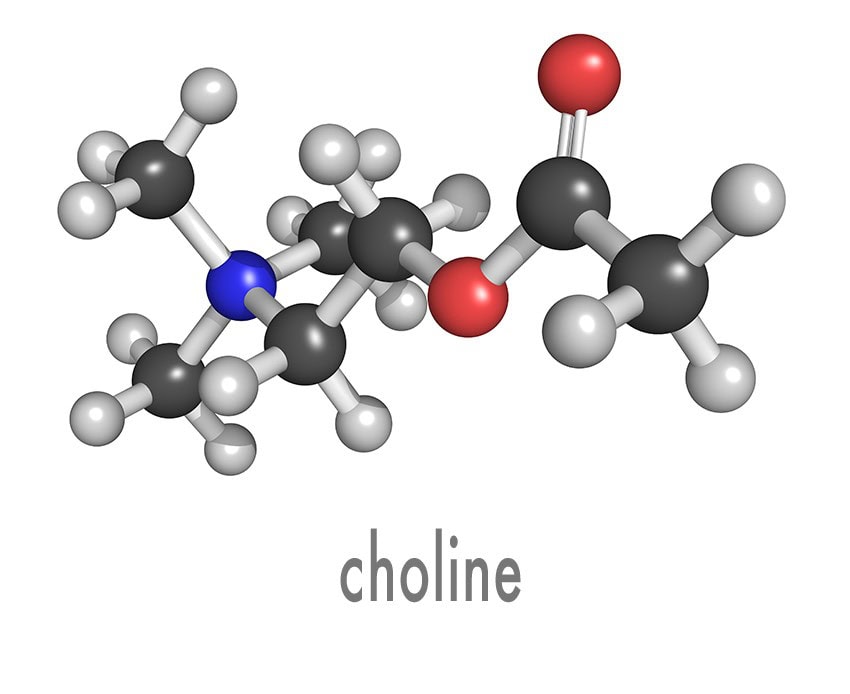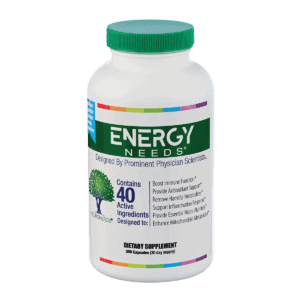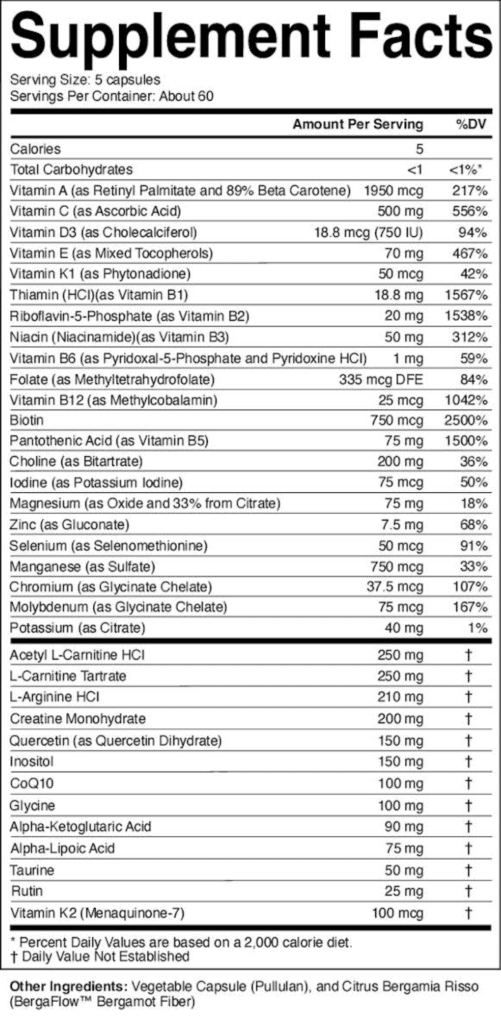$84
CHOLINE
Choline is an essential nutrient for humans. While humans can produce choline, biosynthesis is generally thought to be insufficient and additional choline must also be obtained in the diet for optimal health. Choline is a fundamental nutrient for brain development, and is required for synthesis of the neurotransmitter acetylcholine, is a component of the membrane phospholipids, phosphatidylcholine and sphingomyelin, and is a major source for methylation via betaine synthesis. Choline is particularly important in early life, and in the United States, it is a mandatory ingredient for infant formulas. Signs of choline deficiency can include fatty liver, fatigue, memory problems, “brain fog”, cognitive/learning disabilities, and muscle pain. Choline is sometimes recommended in a variety of liver, cardiovascular, neurological, and metabolic conditions. However, choline is not generally included in lists of vitamins, few multivitamins contain choline, and it is poorly studied. Side effects are rare at usual doses used in supplementation.
Choline in EnergyNeeds®
Choline is added in order to provide a wide basis of nutrition, especially given the important role of choline in folate metabolism, methylation, and neurotransmission. Side effects are unexpected.

Choline is an essential nutrient for humans. While some animals cannot produce choline and it is thus a vitamin in those species, in humans, choline is not technically a vitamin as it can be produced in the liver. However, biosynthesis is generally thought to be insufficient and additional choline must also be obtained in the diet for optimal health (https://ods.od.nih.gov/factsheets/Choline-HealthProfessional).
Choline is the precursor molecule for the neurotransmitter acetylcholine, which is involved in many functions including memory, mood, autonomic activity, and muscle contraction. Choline is also a component of the membrane phospholipids, phosphatidylcholine and sphingomyelin, which are abundant in cell membranes. Some choline is converted to betaine, which is a major source for methyl groups (methylation) and participates in the S-adenosylmethionine (SAMe) synthesis pathway. Inadequate choline and betaine levels can affect folate metabolism and in turn adversely affect methylation and antioxidant capacity. Overall, choline is a fundamental nutrient for brain development.
The United States, European Union and many other entities do not publish a Recommended Dietary Allowance (RDA) for choline due to lack of consensus evidence, however, they have published an Adequate Intake level since there is sufficient data to suggest a dietary requirement for choline, especially in early life. In point, the United States requires that choline be added to infant formulas. One of the first clinical signs of dietary choline deficiency is the development of fatty liver, as phosphatidylcholine is a critical component of very-low-density lipoproteins, which are responsible for transporting triglycerides (fat) out of the liver. The requirement for dietary choline is evident from studies revealing low choline levels and fatty liver, which are reversible on choline supplementation, in patients on total parental nutrition (TPN) devoid of choline (https://www.ncbi.nlm.nih.gov/pubmed/9183326). In addition, “choline deficiency is the only nutrient deficiency shown to induce the development of spontaneous carcinoma” (cancer, https://www.ncbi.nlm.nih.gov/pmc/articles/PMC2518394). Additional signs of choline deficiency can include fatigue, memory problems, “brain fog”, cognitive/learning disabilities, and muscle pain.
Choline is sometimes recommended in a variety of liver, cardiovascular, neurological, and metabolic conditions. However, choline is not generally included in lists of vitamins, and is poorly studied.
Choline is water-soluble, and the tolerable upper-range of dosing is far greater than the usual doses used in supplementation. Side effects are rare, but a fishy body odor and vomiting can sometimes be noted at extremely higher dosing.
Laboratory testing can reveal the presence of a deficiency of this nutrient, but is generally not likely to have clinically utility.
How and Why is Choline Used in EnergyNeeds®
Choline is added to EnergyNeeds® in order to provide a wide basis of nutrition, especially given the important role of choline in folate metabolism, methylation, and neurotransmission. Side effects are unexpected at the doses used in EnergyNeeds®.
Order EnergyNeeds®Today
Formulations










